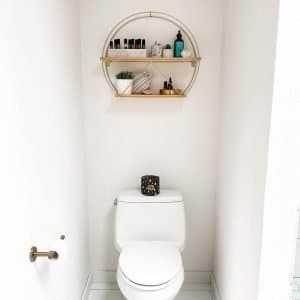 If you have a malfunctioning digestive system, you probably hate the way you feel after you eat and even limit your diet because of it. There are a lot of different degrees of dysfunction, so I’m just going to address things like bloating, heartburn, gas, diarrhea and constipation that are uncomfortable, but not serious. While all reoccurring problems should be discussed with your health care professional, if the issue is determined to be minor, but ongoing, making lifestyle changes may be what you need.
If you have a malfunctioning digestive system, you probably hate the way you feel after you eat and even limit your diet because of it. There are a lot of different degrees of dysfunction, so I’m just going to address things like bloating, heartburn, gas, diarrhea and constipation that are uncomfortable, but not serious. While all reoccurring problems should be discussed with your health care professional, if the issue is determined to be minor, but ongoing, making lifestyle changes may be what you need.
Exercise may be a top priority for your digestion.
If you’re bloated or gassy, nothing sounds less desirable than doing jumping jacks or sprinting down the road. However, exercise could be extremely helpful with the condition. Walking can be extremely helpful after a meal. There are studies that show that walking helps move the food through your system after a meal and lowers blood sugar levels. It also helps pass gas through the system, to eliminate that bloated feeling. Intense exercise isn’t recommended, however, since it can create more digestive problems.
Regular exercise helps digestion in the long range, too.
A program of regular exercise can help strengthen your digestive system. It can help with constipation and strengthen the muscles in the system. It can increase the beneficial microbiota—digestive bacteria and etc.—that aids with digestion and help lower the risk of colon cancer. That improvement in the microbiome can make digestion better, eliminating much of the gas and distress you may have had months earlier. Regular exercise has proven to help relieve gas, stomach cramps, constipation and heartburn.
Your belly bugs will be happy when you eat healthier.
Your gut contains microbiome that is responsible for a vast array of functions from boosting your metabolism to digestions. You couldn’t survive without them. Not only does exercise help boost the friendly ones, so does what you eat. Increasing your fiber intake helps. Be careful when you do that. Increasing it too much at one time can have a negative effect. Fermented food can help improve your gut microbiome. Choose food like kefir, yogurt, sauerkraut, and kimchi. Increasing fresh fruit and vegetables that are high fiber also helps.
- There are two types of fiber, soluble and insoluble, which help the digestive tract. Soluble fiber turns to a gel when mixed with water and insoluble fiber provides bulk. Both help prevent constipation.
- Drinking plenty of water can help digestion. Your body needs water to help food break down after a meal so it can absorb the nutrients. It also helps keep stool soft to help relieve constipation. Drink eight 8-oz glasses of water a day.
- Cut out sugar. Sugar decreases the number of healthy bacteria and feeds the harmful microbes that interfere with digestion.
- Take a short break from eating. Studies show that intermittent fasting can help all of the body, including digestion.
Contact us today at Iron Fit San Antonio
